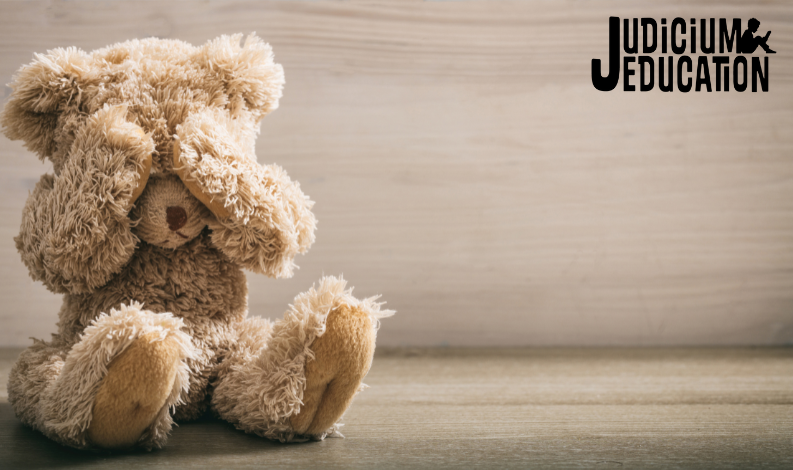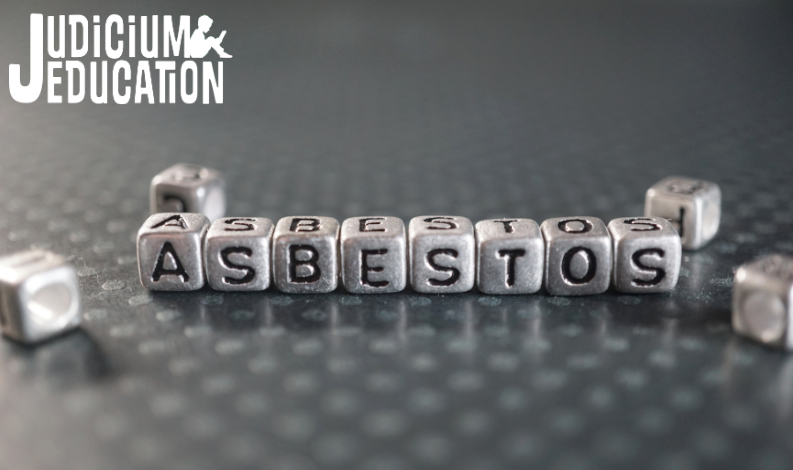
Safeguarding: Tackling and Responding to Domestic Abuse: What Schools Should Know
subscribing to our newsletter
This blog is based on Judicium’s Safeguarding ‘Sofa Session’ from the 13th of March, with our resident expert Joanne Bocko. This session focused on what schools should know when it comes to domestic abuse, what schools should do if they have concerns about domestic abuse, Operation Encompass, and what support schools can offer.
Polls
***Correct answer: 1 out of 5
***Correct answer: 1 out of 7
The definition of domestic abuse
Domestic abuse can encompass a wide range of behaviours and may be a single incident or a pattern of incidents. Domestic abuse can be, but is not limited to, psychological, physical, sexual, financial, or emotional.
It’s important to consider that while some methods of abuse might be easier to spot, others are much harder, and school need to work to be in-tune with their families to understand some of these subtleties.
Children can be victims of domestic abuse. This was introduced in the Domestic Abuse Act 2021, which states children affected by domestic abuse will automatically be treated as victims regardless of whether they were present during violent incidents.
It’s imperative to understand the detrimental and long-term impact domestic abuse can have on children’s health, wellbeing, development, and ability to learn from their experiences at home.
For very small children, you might notice developmental delays, being withdrawn from their mother, or they may struggle to manage their emotions.
Older children may worry about younger siblings and take on the responsibility for caring for them. They may feign illness to be able to go home and check on the situation.
Through to teenagers, you may see them struggle to make and maintain friendships and relationships, struggle with their mental health and turn to substance misuse or self-harm to cope. They may show more aggression and become bullies or be bullied. They also may express concerns about parents divorcing.
Overall, children who have been exposed to domestic abuse for a long period of time may develop Toxic Stress Syndrome.
For schools, understanding what children have been through is essential to your work and the ability to be proactive in supporting parents to stop concerns escalating and your ability to react to support children after an incident has occurred. This is further reflected in KCSIE guidance.
Operation Encompass
Operation Encompass is a police and education early information safeguarding partnership enabling schools to offer immediate support to children experiencing domestic abuse.
It aims to ensure schools are notified prior to the start of the next school day after an incident where police attended due to domestic abuse where there are children related to either of the adult parties involved.
NB: It’s important to mention that domestic abuse does not have to be partners, it can also relate to the extended family, e.g., an older sister who is abusive to mum, or a dad who is abusive to grandma. The parties must be over 16 and either related or in an intimate relationship currently or previously.
As a school, it’s worth being conscious of the wider family and relationship dynamics within the family home, especially where communities behave in line with a so-called ‘honour’ code.
The sharing of information through Operation Encompass intends to enable appropriate support to be given, dependent upon the needs and wishes of the child.
We recommend if you’re not signed up to Operation Encompass, or to receive domestic abuse notifications from your LA or Police, it may be a good idea to consider making enquiries here.
With 2.1 million adults experiencing domestic abuse in the year March 2022-2023, if you have not received any reports to date, it’s worth liaising with your Operation Encompass contact. While we are aware not all domestic abuse is reported to the police, having no reports could be a sign that the system is not currently working effectively. Similarly, if you have received reports previously, but no longer receive these, enquire to confirm you are still being notified.
From our work with schools across the country, we understand different police forces may have different approaches to the information shared. For instance, where some schools have a clear overview of what occurred within an incident, others may only be made aware an incident has occurred with no further detail provided.
We recommend where possible to engage with your local DSL networks to gain an understanding of what information is shared and why so you can raise concerns with those responsible for the generation of such reports.
What schools can do to help
Many of our school clients tell us they often find out directly from parents and students where domestic abuse occurs before the Operation Encompass report is received. We appreciate that although relevant notifications are extremely helpful to be in-tune with your children and offer them timely support, it doesn’t replace the relationships you build within our school community.
So, what can schools do to help?
1. Explain their choices
The safety and wellbeing of children is paramount and one of the barriers to seeking support is concerns about police attendance and getting their partner into trouble.-
- For abused individuals to access support, it should be made clear to them this can occur without the police being notified.
- It’s important to have a distinction between abuse you know about where your child protection referrals and thresholds will apply, and domestic abuse that you may suspect but is not known or evidenced. In the latter case, you can suggest individuals access support and make them aware it can be done independently.
2. Safety planning
You might consider supporting individuals with safety planning.-
- In the early stages of concerns being known, you may discuss with victims of abuse a safe way to establish contact or safe adults in their life. You may wish to support them to secretly meet with an independent domestic abuse advisor (IDVA) in school.
3. Provide appropriate signposting
Ensure you know what your local organisations for domestic abuse are.-
- Consider if these details are on the school website? Are there posters in the bathrooms (including the men’s)? Do you have appropriate information and signposting for male victims in your area? Or child to parent abuse?
- Ensure you are clear on early help, including mental health and drug and alcohol services, as these may be further barriers for individuals to leave.
- Abusers may make an individual addicted, to ensure they rely on their abuser for their next fix. Some might keep someone under the influence so they can’t think straight, or so their credibility as a victim can be undermined.
- Mental health appears to be bi-directional, those with poor mental health may be more vulnerable to abusive relationships, and those in abusive relationships are more likely to have poor mental health. Where mental health is poor, the ability to motivate change can be impaired.
4. Understand the law
There have been several new offences brought into law through the domestic abuse act and the online safety act it’s worth being aware of. You may be able to help victims of abuse understand the criminal nature, or what is happening to them at home. New offences added include:-
- Coercive and controlling behaviour (It’s now no longer a requirement for parties to live together).
- Revenge porn (to include threats to publish, even where publishing doesn’t occur).
- Non-fatal strangulation
- As previously stated, children are now victims in their own right.
- You might also consider an understanding in civil non-molestation orders, but the police and domestic abuse support agencies should be able to help with this.
5. Tackle myths and empower staff
Have you tackled misconceptions with staff? Domestic abuse can see men and women as victims, this applies too to same-sex relationships. It’s happening within all races, religions, and communities, whether partners are wealthy or deprived.-
- As with everything in relation to safeguarding ‘it could happen here’. There may be abuse happening within your staff team, and families.
- You should ensure staff are empowered to start the conversation, as with domestic abuse, opportunities to engage with a victim of abuse may be challenging and timing may be everything. There is nothing to stop any member of staff seizing the opportunity to ask that person, ‘are they safe’, and ‘do they feel safe to go home’.
6. Understand the cycle of abuse
Abuse often happens in a cycle. If an abuser was only ever abusive, it would be much easier for individuals to consider leaving. Incidents of harm are often followed by a honeymoon period before the tension builds again towards a further abusive incident.-
- Knowing when to speak with victims of harm (straight after the abusive period) will support engagement. This is where Operation Encompass can help. Where concerns are not known for some time, you may be trying to engage with victims during the honeymoon period and therefore, the incentive to leave may be lessened due to promises of improved behaviour, gift giving and love bombing.
- You may also notice happier children and perceive the harm has passed, but unfortunately it may be likely that this is part of the cycle.
7. Be able to identify behaviours and trauma in children
Many schools have increased their training of trauma informed approaches.-
- Children in homes where abuse is taking place are more likely to experience fight, flight and freeze behaviours (due to toxic stress syndrome).
- We’re also aware of the impact of abuse on the brain development of babies and toddlers, which may mean where children are settled now, they may still be dysregulated from incidents that occurred before they were conscious of it.
- You should be curious about behaviour, and support children to be regulated.
- You should also be mindful not to associate dysregulated behaviours solely to known family circumstances, but continue to be curious for any further changes, e.g. you may associate a behaviour due to domestic abuse that happened in the past, but the relationship has now ended, and the parent may be in a new abusive relationship.
8. Ensure children receive education on healthy relationships
Approximately 1 in 5 people aged 16 years and over (9.8 million) had experienced domestic abuse since the age of 16 years (March 22-23 stats from National Office of Statistics).-
- This shows, especially for our secondaries, how children’s first relationships can be abusive and continue to be abusive.
- You need to ensure sufficient time is given in the curriculum to help children understand what behaviour is appropriate and how to ask for help. Time should be given to this as a priority and as a stand alone - not a bolt on, brief session or
- Give students the opportunity to engage, debate and ask questions and for help.
9. Share information
You may be asked to provide any information you share on parents’ relationships for MASH and MARAC (multi-agency risk assessment conference for domestic abuse). Ensure you do so, and attend where you can.-
- We have seen time and time again that serious case reviews show a lack of information sharing leads to increased risk and harm towards children and families.
10. Be aware of when the risk is the highest
When individuals leave a relationship or are pregnant, this increases the risk of harm, including death. However, you should ensure you continue to monitor and support children and families even when they appear to be in safer circumstances.-
- Be mindful that court bail conditions, restraining orders and non-molestation orders do not mean safety is guaranteed, as these are only as effective as the perpetrators willingness to comply, the victim’s ability to report and the police availability to follow up and evidence the breach. Be aware of your risk perception and never make assumptions.
- You should also consider pick up arrangements for children. How do these link into conditions and how are you being mindful of separated parents? NB: Judicium offers additional training on this, so please check out our Live @ 3:45 briefing on Schools in the Middle.
5 Top Tips
- Ensure you are in receipt of Operation Encompass and consider challenging where information is not forthcoming, insufficient, or untimely causing action to be ineffective.
- Ensure staff know the signs to notice, are empowered to start conversations around domestic abuse and the early help available in your local area.
- Continue to be curious about family circumstances and children’s behaviour, and don’t make assumptions.
- Establish working relationships with your local domestic abuse agency, including those working with men.
- Ensure staff know it could happen here, to parents, and within the staff unit.
Refuge National Domestic Abuse Helpline
The Safeguarding Service is hosting live, virtual training courses this term. Upcoming courses, dates and links to book are below:
Advanced Safeguarding Training (for DSLs and Deputies) - 19th March 2024
Live at 3:45 'Evolving Trends Online'- 20th March 2024
Live at 3:45 'Schools in the Middle - Your Responsibilities when Parents are in Conflict'- 17th April 2024
Safeguarding Training for Governors - 2nd May 2024
Safer Recruitment Training - 14th May 2024
Advanced Safeguarding Training (for DSLs and Deputies) - 21st May 2024
Safeguarding eLearning Courses
You can follow us on Twitter: @JudiciumSG @JudiciumEDU
If you’d like to review Judicium’s forthcoming sofa sessions please click here
© This content is the exclusive property of Judicium Education. The works are intended to provide an overview of the sofa session you attend and/or to be a learning aid to assist you and your school. However, any redistribution or reproduction of part or all of the contents in any form is prohibited. You may not, except with our express written permission, distribute or exploit the content. Failure to follow this guidance may result in Judicium either preventing you with access to our sessions and/or follow up content.
Related content
.png)
This blog is based on Judicium’s Safeguarding ‘Sofa Session’ from the 25 April with our resident expert Sarah Cook.

This blog is based on Judicium’s Health and Safety ‘Sofa Session’ from the 24th of April, with our resident expert Marta Zydel.

This summary is based on Judicium’s Employment Law ‘Sofa Session’ from the 17th of April, with our resident expert Paul Luffman LLB (Hons), L.P.C.
.png)
This is a summary taken from Judicium’s DPO ‘Sofa Session’ from the 20th of March with Data Services Consultant Patrick Ballantine.
.png)
This blog is based on Judicium’s Health and Safety ‘Sofa Session’ from the 14th of March, with our resident expert Jamie Ashard, LLB (Hons), GradIOSH, DipNCRQ.

This summary is based on Judicium’s HR ‘Sofa Session’ from the 6th of March, with our resident expert Louise Durbin, Chartered MCIPD.


(1).png)
(1).png)
Sofa Sessions | Safeguarding